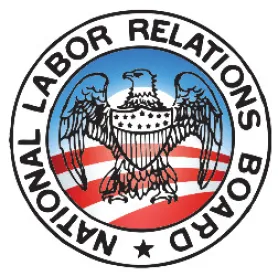Given the pervasiveness of social media in society, the National Labor Relations Board (Board) has been forced to frequently weigh in on the intersection between employee and employer’s social media activity and labor law. The Board has released a great catalog of cases over the past decade touching on issues related to the workplace and social media—these issues range from what social media policies and employer may enact to what discipline an employer may impose for an employee’s social media conduct.
In the recent decision in FDRLST Media, LLC, 370 NLRB No. 49 (2020), the Board was asked to determine whether a tweet from an executive of The Federalist, an online conservative magazine, claiming he would send the Company’s employees “back to the salt mine” if they attempted to organize a union violated the National Labor Relations Act (Act). The tweet was sent in response to public reporting that employees at another, more liberal, media company had staged a walkout. The Board found that the executive’s tweet violated Section 8(a)(1) of the Act because “employees would reasonably view the message as expressing an intent to take swift action against any employee who tried to unionize.”
In so finding, the Board rejected the employer’s argument that the tweet was posted in jest and it was clear from the context of the tweet that the executive’s intent was not to discourage the company’s employees from organizing. To support this argument, two Federalist employees submitted affidavits claiming that the tweet was funny, sarcastic, and that they did not feel threatened by the tweet. There was also no evidence that Federalist employees were organizing or were planning to organize a union. Moreover, any possibility of Federalist employees organizing a union was likely extremely low given that it is a conservative online magazine.
Nevertheless, the Board found that the executive’s motive in posting the tweet was not at issue. The relevant test, the Board held, is whether the employer engaged in conduct which would tend to interfere with an employee’s exercise of rights under the Act. The Board found the executive’s tweet met this test because employees could reasonably infer from the tweet that the employer would take adverse action against them if they attempted to unionize.
The employer also argued that because the communication was posted on the executive’s personal social media account, there was no intent that the message was directed at the company’s employees. Here again, the Board rejected this argument because the parties stipulated at least one employee of the Company saw the tweet. Moreover, the Board relied on longstanding precedent that “a threat ‘not intended for the eyes of employees’ but nevertheless seen by them violates Sec. 8(a)(1).”
This case should serve as a reminder to employers that expressing anti-union sentiments on social media may run afoul of the Act. This can be the case even when an employer believes, like the Federalist probably did, that the chance of its employees organizing is practically non-existent. While employers are free to voice opinions on unions to their workforce, careless and flippant comments from employers about unions and unionizing on social media—even if meant in jest—do not evade scrutiny under the Act. Accordingly, it is important that employers train their supervisors that their statements—even on their personal social media accounts—can subject employers to liability under the Act.






 />i
/>i

